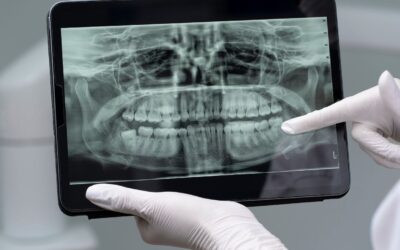Wisdom teeth, often causing discomfort and pain as they emerge, can also lead to an unexpected problem: bad breath, or halitosis. Though many people know that wisdom teeth can lead to gum irritation, few realize the connection between these teeth and persistent foul-smelling breath. Wisdom teeth, also known as third molars, are the last set of molars at the back of your mouth and typically emerge between the ages of 17 and 25. Their positioning in the mouth can make it challenging to clean properly, leading to a build-up of food particles, bacteria, and plaque. In this article, we will delve into why wisdom teeth cause bad breath, its underlying causes, potential solutions, and preventive measures to ensure that your breath stays fresh.
Why Wisdom Teeth Cause Bad Breath: Understanding the Causes
Bad breath related to wisdom teeth is often the result of several contributing factors. Let’s break down the most common causes:
1. Partially Erupted Wisdom Teeth
One of the primary reasons wisdom teeth can cause bad breath is when they emerge only partially through the gums. This condition, known as partial eruption, occurs when there isn’t enough space in the mouth for the tooth to break through fully. This creates an opening around the tooth where food particles, bacteria, and plaque can become trapped, making it challenging to clean properly. The accumulation of these particles results in bacterial growth, which causes foul-smelling breath.
The food particles stuck in these small crevices can lead to the growth of bacteria, which produce sulfur compounds that create the unpleasant odor. In severe cases, a partially erupted wisdom tooth can lead to gum infections, which can intensify the bad breath.
2. Impacted Wisdom Teeth
Wisdom teeth can also become impacted, meaning they don’t fully emerge through the gums or grow in at an angle. Impacted wisdom teeth are a common cause of bad breath, as they are more likely to trap food particles, bacteria, and plaque underneath the gum line. The lack of space for proper eruption increases the likelihood of infection and inflammation, which are key contributors to halitosis. When an infection occurs, it can lead to pus production, which has a particularly foul odor.
3. Infection of the Surrounding Gum Tissue
If wisdom teeth are not cleaned properly due to their difficult positioning, the gum tissue around them can become infected. Gum infections, known as gingivitis or periodontitis, are a major cause of bad breath. As the infection progresses, the tissue becomes inflamed, and bacteria thrive in the area, causing a strong odor. This can lead to a cycle of worsening bad breath, discomfort, and further bacterial growth.
4. Accumulation of Plaque and Tartar
As mentioned earlier, wisdom teeth are harder to clean properly, which can result in plaque accumulation. Plaque is a sticky film of bacteria that forms on the surface of your teeth. If left untreated, plaque hardens into tartar, which can only be removed by a dentist. The bacteria present in plaque and tartar can contribute significantly to bad breath, particularly when it accumulates around wisdom teeth.
How Oral Hygiene Affects Bad Breath from Wisdom Teeth (H3)
Maintaining proper oral hygiene is critical to preventing bad breath caused by wisdom teeth. Since these teeth are positioned at the back of the mouth, they are often difficult to clean effectively. This makes them prime candidates for plaque build-up and bacterial growth. Here’s a closer look at how oral hygiene plays a role in managing bad breath:
1. The Role of Brushing and Flossing
When food particles and plaque are allowed to accumulate around wisdom teeth, they serve as breeding grounds for bacteria, which release sulfur compounds that contribute to foul-smelling breath. Brushing your teeth at least twice a day with fluoride toothpaste helps remove plaque, while flossing daily can clear out food particles stuck between your teeth and around your wisdom teeth. Regular brushing and flossing help reduce bacteria buildup and maintain fresh breath.
2. The Importance of Mouthwash
In addition to brushing and flossing, mouthwash can be an effective way to reduce bacteria and freshen your breath. Antibacterial mouthwashes can kill bacteria in your mouth, especially in hard-to-reach areas around your wisdom teeth. A mouthwash with fluoride can also help strengthen your enamel, preventing tooth decay and further plaque buildup.
The Impact of Impacted Wisdom Teeth on Bad Breath (H3)
Impacted wisdom teeth are one of the primary contributors to chronic bad breath. When these teeth are trapped beneath the gum line, they cannot be cleaned effectively, leading to the accumulation of food, plaque, and bacteria in the surrounding tissue. This creates an ideal environment for bacteria to grow and release foul-smelling gases.
Here’s a closer look at how impacted wisdom teeth affect your oral health and contribute to bad breath:
1. Difficulty Cleaning the Area
Because impacted wisdom teeth are often located at the very back of the mouth and may not fully erupt, cleaning them thoroughly is nearly impossible. The inability to properly clean these teeth leads to plaque buildup, which eventually leads to bad breath.
2. Infection and Abscess Formation
When an impacted wisdom tooth becomes infected, it can cause severe pain, swelling, and bad breath. The infection may form an abscess, which is a pus-filled pocket of bacteria that produces a strong, foul odor. If the infection worsens, it can lead to even more serious complications, such as damage to the surrounding teeth or bone.
Preventing and Managing Bad Breath Caused by Wisdom Teeth (H2)
While wisdom teeth can cause bad breath, there are several ways to prevent or manage this issue effectively. Here are some tips for keeping your breath fresh, even with wisdom teeth:
1. Practice Good Oral Hygiene
Maintaining good oral hygiene is the most effective way to prevent bad breath caused by wisdom teeth. Make sure to brush your teeth twice a day, using fluoride toothpaste, and floss daily to remove food particles and plaque from between your teeth. Using mouthwash with antibacterial properties can also help kill bacteria and freshen your breath.
2. Regular Dental Checkups
Regular dental visits are essential for managing wisdom teeth-related issues. A dentist can perform professional cleanings to remove plaque and tartar that may have accumulated around wisdom teeth, reducing the chances of infection and bad breath. Dentists can also monitor the health of your wisdom teeth and recommend removal if necessary.
3. Wisdom Teeth Removal
In some cases, wisdom teeth may need to be removed, especially if they are impacted or causing frequent infections. Removing the wisdom teeth eliminates the source of bad breath, allowing you to maintain better oral hygiene and reduce the chances of developing further oral health issues. Consult with your dentist to see if removal is a viable option.
Can Wisdom Teeth Removal Help with Bad Breath? (H3)
For many individuals, the removal of wisdom teeth can significantly improve oral hygiene and eliminate the source of bad breath. If your wisdom teeth are impacted or causing infections, getting them removed can provide relief from both the discomfort and the unpleasant odor caused by bacterial growth around these teeth.
Conclusion
Wisdom teeth are often a source of bad breath due to their location, their difficulty in being cleaned properly, and the potential for infection or impaction. However, with good oral hygiene practices, regular dental checkups, and, in some cases, wisdom teeth removal, you can significantly reduce or eliminate bad breath associated with these teeth. If you’re experiencing persistent bad breath and suspect your wisdom teeth may be the cause, consult with your dentist to determine the best course of action for maintaining fresh breath and optimal oral health.
FAQs
1. Can wisdom teeth removal stop bad breath?
Yes, wisdom teeth removal can eliminate the source of the infection or impaction causing bad breath, leading to fresher breath and improved oral hygiene.
2. How do I know if my wisdom teeth are causing bad breath?
If you experience persistent bad breath along with swelling, pain, or difficulty cleaning the back of your mouth, your wisdom teeth may be the cause.
3. Is bad breath a sign that my wisdom teeth are infected?
Yes, bad breath can be a sign of infection around the wisdom teeth. If the infection is untreated, it can lead to more serious oral health problems.
4. Can brushing my wisdom teeth reduce bad breath?
Brushing your wisdom teeth properly can help reduce plaque buildup and bacteria, which are key contributors to bad breath.
5. When should I see a dentist about bad breath from my wisdom teeth?
If your bad breath persists despite proper oral hygiene or if you experience pain, swelling, or infection, it’s time to visit a dentist.
6. Are there any home remedies to prevent bad breath from wisdom teeth?
While good oral hygiene is the best defense, using antibacterial mouthwash and rinsing with saltwater can help reduce bacteria and alleviate bad breath temporarily.



